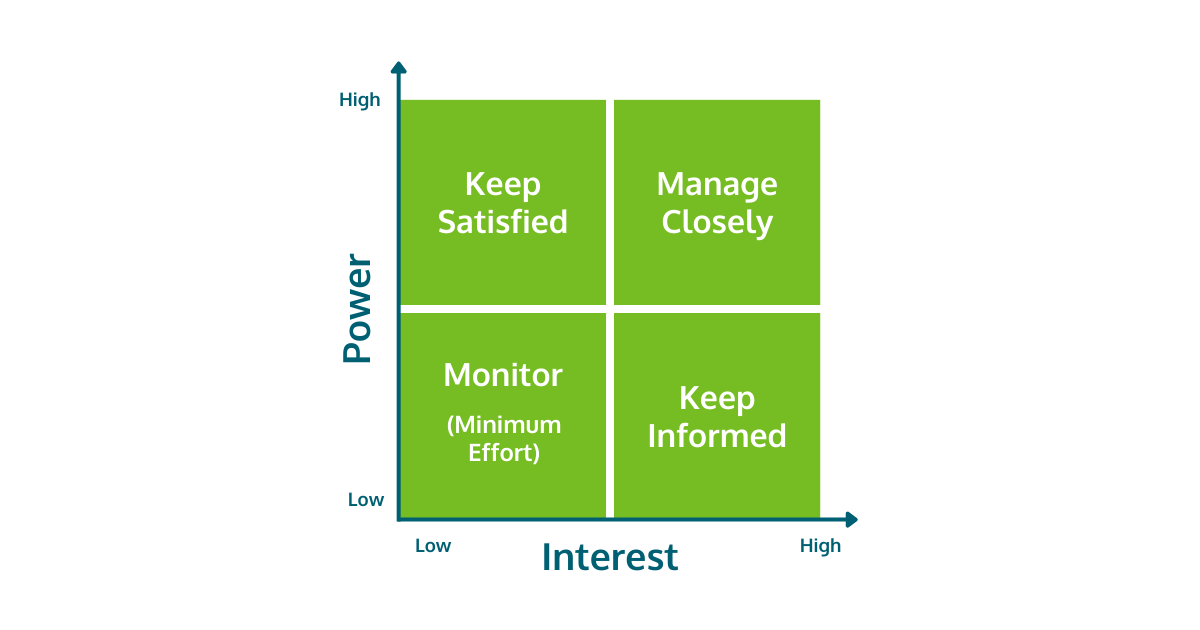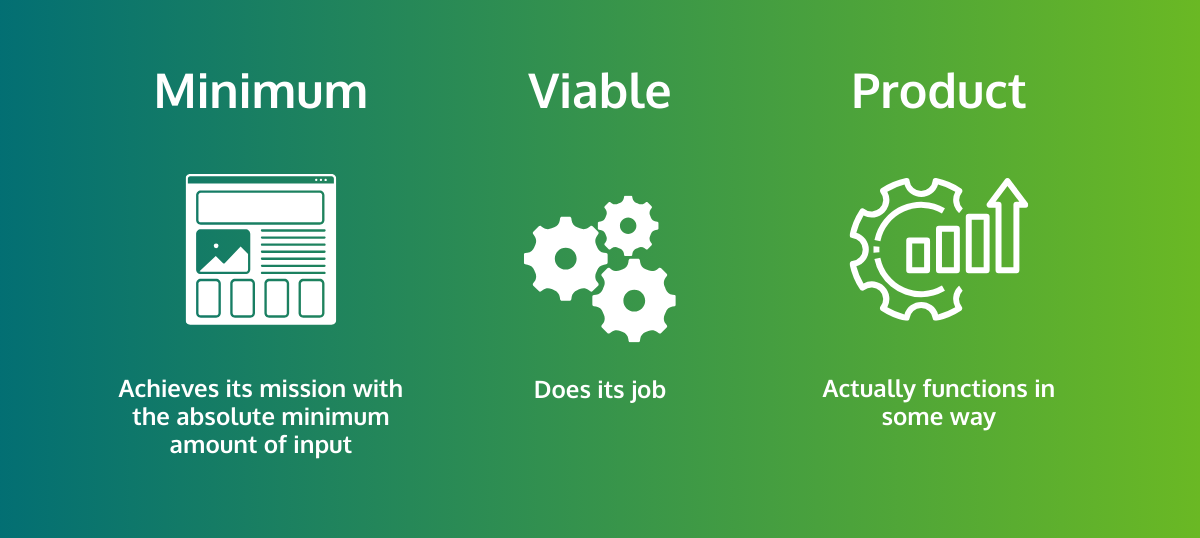It sounds like a cliche at this point but it remains true: marketing is getting harder.
Technologies like AI and new regulations around privacy are disrupting long-standing practices. At the same time, customer expectations are going up and up. For marketing managers, all of this combined with the day-to-day realities of managing teams can add up quickly.
But the first step to overcoming all of your management challenges is understanding what they are. Luckily, we’re about to do just that. Not to mention, share hard-earned wisdom from our own experience to help you overcome those challenges.
Management Challenge 1: Building the Right Culture
This is first on the list because so many of the other management challenges are deeply intertwined with culture. In fact, if you play psychologist and talk with marketing managers for a while, you’ll see that most of their problems really boil down to cultural issues.
Put another way, you can make all of the process improvements you want but if your culture issues aren’t addressed you’re unlikely to get the results you want. But building an effective culture isn’t easy, particularly when remote working is more prevalent than ever.
So what can you do? Start with principles and mindset, emphasizing the “why” behind what you do instead of simply telling people what behaviors they should exhibit. Next, leaders need to model the behaviors they want to see, focusing on being open, collaborative, and supportive instead of relying on old command-and-control models.
For example, if you’re trying to tackle management challenge number 8 and be more customer centric, you shouldn’t stop at just telling your team members to think of the customer more. You need to provide training and explanations as to why that behavior is so important. Then, bring it up in planning and show how that principle can be applied to making decisions.
Management Challenge 2: Managing Workloads
Everything from volatile sales cycles to burnout can lead to inconsistent workloads that wear down teams, hurt morale, and lead to poorer quality work. With 70% of marketers saying they feel overwhelmed addressing this management challenge has never been more important.
Fortunately, there are many ways to handle workloads. The first is simply better prioritization. By introducing a more structured system for prioritizing work around delivering value to stakeholders, it becomes easier to do less work without necessarily delivering less value.
The next step is improving your estimation, something we humans are notoriously bad at. Here, games like planning poker can help you consistently improve your accuracy so you can avoid overburdening teams.
Once you have your priorities and understand how much work various items will take, you need to assign them. Here, it’s important to remember that trying to keep everyone working at 100% capacity is simply a recipe for burnout. Instead, try working at around 70% capacity to ensure there’s slack for emergencies and so people don’t feel overburdened.
Management Challenge 3: Deciding How to Deal with AI
There’s no getting around the reality that AI is creating a lot of stress for marketing managers. They know their competitors are likely using it, but the question of how best to utilize it themselves can feel overwhelmingly complex.
The first point to bear in mind is that AI is just a tool like any other. That’s why it makes sense to let people use AI for the things it’s good at, and trusting them to do that will help. For example, using AI to help with more mundane tasks can help marketers focus on the creative tasks AI isn’t good at. Just make it clear that how you deal with AI is going to need to evolve over time as the technology does.
In fact, used correctly, AI can really make marketers more effective. Just be sure to begin with the right kind of culture: one built on trust where outcomes and not outputs are the priority. That’s an environment where AI is likely to be used in a productive and effective way.
Management Challenge 4: Remaining Competitive
Global business competition is on the rise, putting increasing pressure on marketing organizations as they are consistently asked to do more with less. In this environment, marketing managers need to avoid getting stuck in a race to the bottom, because there’s always going to be someone with lower costs than you. In a world where AI use is increasingly prevalent, that’s never been more true.
Instead, marketing managers need to focus on creative marketing that delivers more value without necessarily spending more money. That begins with that same laser-focus on stakeholders, but also relies on building an environment with psychological safety. There, marketers can feel empowered to iterate, experiment, and uncover strategies that will enable you to remain competitive.
Management Challenge 5: Handling Underperforming Employees
With unemployment rates low and employee expectations high, the prospect of finding a replacement for an underperforming team member is not something any marketing manager is excited about. Of course, the best way to tackle this management challenge is by finding a way to improve that performance rather than hiring a replacement.
It shouldn’t come as a surprise that this issue too ties back to culture. The best way to create high-performing marketing teams is by building a culture where people feel encouraged and supported to do their best work.
One way to do this is by employing sprints that focus on team performance. This creates an environment where people feel both that their team will support them when they struggle and that underperformance will let the team down. That’s a powerful combination for encouraging people to perform at their best and feel better while doing it.
Management Challenge 6: Stakeholder Management
We all have stakeholders, but figuring out how to manage them is always a challenge. Should you be very hands-on and work closely with them or just send them occasional updates? One helpful way to look at this is by considering two factors: how much power a stakeholder has and how interested they are in your work.

Using those factors, you can place your stakeholders into one of these four boxes and gain insights into the best approach to managing them. This can help you save precious time and resources by limiting the work invested into this management to what’s necessary and nothing more.
Management Challenge 7: Effective Budget Management
Across businesses and industries, marketing budgets are down. In response, marketing managers are facing difficult decisions about where to make cuts without compromising their performance.
Here again, using stakeholder value as a central focus can help teams make tough decisions about where to focus their limited resources. But beyond that, leveraging the Agile mindset of “work smarter, not harder” is also helpful as it encourages marketers to find unorthodox solutions instead of simply throwing money at a problem.

For example, using AI to automate or streamline tasks that otherwise take a lot of time to complete. Or simply iterating more quickly and using MVPs to minimize the amount you need to spend to learn those invaluable lessons.
Before you move on, why don't you take a second to check if bad processes are eating up your marketing budget?
Management Challenge 8: Achieving Customer Centricity
As if we didn’t have enough marketing management challenges to deal with, customer expectations are also at all-time highs. In this landscape, teams that don’t consistently think about their customers’ expectations and how they can be met are going to fall behind. That means creating cultures built around customer-centricity has also never been more important.
In fact, the latest State of Agile Marketing Report found that improving customer experience was the single highest priority for marketers.

We say “culture” here because it’s one thing to simply build a “consideration of the customer” into your existing processes. It’s another to make this a core part of your marketing strategies. This once again ties back to culture and the importance of building customer centricity as a core value.
But the truth is that what your customers want is always going to be a moving target. That’s why customer-centric marketing is built on experimentation and feedback loops designed to regularly test ideas about what customers want.
Ultimately it’s worth the trouble because customer-centric marketing improves ROI by around 15-20%. In a world of increasing competition, that’s a massive advantage.
Management Challenge 9: Employee Retention
We mentioned previously how difficult the hiring environment is for marketing organizations, which is why employee retention is so critical today. But what can marketing managers do to improve retention? Hint, it’s not a pizza party.
If you really want to improve retention, creating work that feels meaningful and valued is the way to go. When marketers can clearly see how their work contributes to broader strategic goals and teams feel like they’re operating like a well-oiled machine, individual marketers feel better about their work.
So instead of focusing on just adding perks, consider how you can use Agile methods and culture to cultivate this kind of environment.
Management Challenge 10: Effective Planning
Managing unplanned work and planning work that is planned are both eternal marketing management challenges. Overcoming them requires making a few key changes. That begins with the prioritization and estimation techniques mentioned above. But those techniques also need to connect to effective strategic plans.
Start by setting and aligning around strategic goals designed to optimize outcomes, not just outputs. By thinking about stakeholder value and framing that value in terms of outcomes, you can begin with more effective and focused strategic plans.
Then, visualize those plans as you go, making it easier to pivot or iterate when needed. Of course, for many of us, even the best plans tend to get disrupted by that nemesis of marketers everywhere: unplanned work. Tackling that problem begins with the foundational steps we just mentioned. But it's also important for marketing managers to be empowered to tell stakeholders that unplanned work is going into the backlog and will be addressed during the next sprint or working period.
The Key to Overcoming Your Toughest Management Challenges
With so many elements to keep track of, trying to tackle all of these marketing management challenges can easily feel overwhelming. Instead of tackling them piecemeal, you can leverage the power of Agile marketing to tackle them all at once.
Every single challenge on this list can be more easily addressed with effective Agile leadership.
But where can you go to develop those skills? Our Agile Marketing Leadership certification course is designed to do just that. Working in small cohorts with seasoned Agile coaches who have spent years helping marketing managers like you develop impactful Agile skills, you’ll get everything you need to tackle these and future management challenges with confidence.